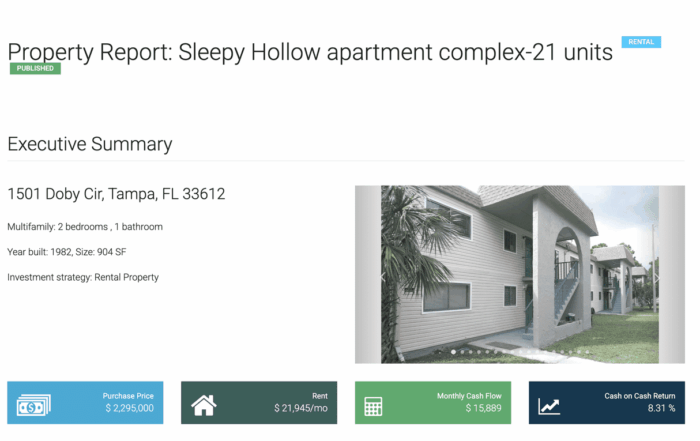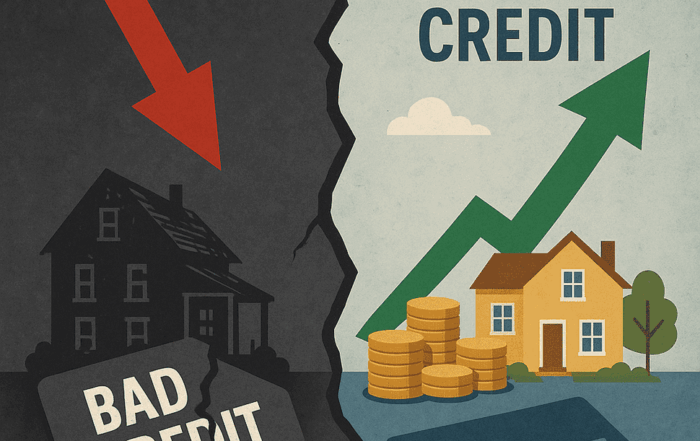
What is Seasoning in Real Estate?
When you hear the term “seasoning” in real estate, it might sound like you’re cooking up something fancy. But don’t worry—this isn’t about adding spices to your property. In real estate, seasoning simply refers to the amount of time something has existed, whether it’s your ownership, loan, or even your down payment. It’s a concept lenders, buyers, and sellers often deal with, and understanding it can make or break your next deal. Let’s dive into the world of seasoning, breaking it down so it’s as simple as your favorite recipe.
What Does “Seasoning” Mean in Real Estate?
At its core, seasoning is a measure of time. It’s used by lenders, title companies, and even buyers to assess risk. Here are the three main types of seasoning:
- Ownership seasoning: How long you’ve owned a property.
- Loan seasoning: How long you’ve been making payments on a mortgage.
- Funds seasoning: How long your down payment money has been in your account.
Each of these plays a role in different parts of the real estate world, and skipping over seasoning requirements can throw a wrench into your plans.
Why Does Seasoning Matter?
Seasoning helps establish stability and reduce risk. For example:
- Lenders want to make sure your property or funds aren’t part of a quick, risky transaction.
- Buyers want confidence that the property has no hidden issues.
- Investors want to avoid fraud or legal complications.
By meeting seasoning requirements, you’re proving that everything is legitimate and above board.
1. Ownership Seasoning: How Long You’ve Owned the Property
Ownership seasoning is a big deal when you’re looking to refinance, sell, or take out a cash-out loan. Lenders often want to see that you’ve held the title for a specific period, like 6 months or a year.
Common Scenarios Where Ownership Seasoning Matters
- Refinancing: Want to refinance your property after buying it? Lenders typically require 6 months of ownership seasoning.
- Flipping Properties: If you’re flipping houses, some buyers may face issues getting financing unless you’ve owned the property for a certain amount of time.
- Cash-Out Refinancing: Planning to pull cash out of your property’s equity? Lenders often need at least 6-12 months of ownership seasoning.
Why Ownership Seasoning Exists
This rule helps prevent fraudulent transactions or risky investments, ensuring you’re not flipping or selling the property too fast without adding value.
2. Loan Seasoning: How Long You’ve Been Paying the Mortgage
Loan seasoning refers to how long you’ve been making payments on your loan. This helps lenders determine how “stable” the loan is.
Where Loan Seasoning Comes Into Play
- Selling the Loan: Lenders often sell mortgages to investors. A loan typically needs to be seasoned for at least 6 months before being sold.
- Refinancing: Some lenders require a loan seasoning period before allowing you to refinance.
- Loan Modifications: To qualify for a modification or special program, lenders may require a history of on-time payments for a certain period.
How It Helps Lenders and Investors
Seasoned loans show lenders that borrowers are reliable and less likely to default. It’s all about reducing risk.
3. Funds Seasoning: How Long Your Money’s Been Sitting
Funds seasoning refers to how long your down payment or closing cost money has been in your bank account. Lenders usually want to see at least 60-90 days of account history.
Why It’s Important
This requirement ensures that:
- The money isn’t borrowed last minute.
- It’s not part of a risky transaction.
- You have the financial stability to buy the property.
How to Meet Funds Seasoning Requirements
- Plan Ahead: Make sure your down payment funds are in your account well before applying for a loan.
- Document Transfers: If you’re moving money from another account, provide clear documentation to show its source.
Common Challenges with Seasoning
While seasoning sounds simple, it can complicate things if you’re not prepared. Here are some common challenges:
1. Flipping Properties Too Quickly
If you’re a real estate investor flipping houses, you may run into title seasoning requirements. Buyers using loans backed by FHA, VA, or conventional lenders might struggle to get approval if you’ve owned the property for less than 90 days.
Pro Tip: Add value to the property and hold it for at least 6 months to avoid complications.
2. Using “Gifted” Funds for a Down Payment
If your down payment is a gift from family, lenders may ask for proof that the funds were gifted and not loaned. You’ll need documentation and a gift letter to show the funds meet seasoning requirements.
3. Quick Cash-Out Refinances
If you’re trying to pull equity out of a newly purchased property, many lenders won’t allow it until you’ve owned the property for at least 6 months.
Seasoning Requirements by Loan Type
Different loans have different seasoning requirements. Here’s a quick breakdown:
1. FHA Loans
- Require 90 days of title seasoning for resale.
- Require 6 months of ownership for cash-out refinancing.
2. Conventional Loans
- May require 6-12 months of ownership seasoning for refinancing or selling.
3. VA Loans
- Typically require 90-120 days of ownership seasoning.
4. Hard Money Loans
- Often more flexible, with little to no seasoning requirements.
How to Avoid Seasoning Pitfalls
Here are some tips to ensure seasoning doesn’t trip you up:
- Plan Ahead: Know the seasoning requirements for your loan type and lender before making a move.
- Be Transparent: Provide all necessary documentation, like bank statements and proof of ownership.
- Hold Your Property: If possible, hold your property long enough to meet seasoning rules before selling or refinancing.
- Work with Experts: Consult with lenders, real estate agents, and attorneys who understand seasoning requirements.
Real-Life Example: How Seasoning Impacts a Deal
Imagine you’re an investor who just flipped a house. You’ve renovated it in 60 days and found a buyer using an FHA loan. However, the FHA requires 90 days of ownership seasoning, so the deal is delayed. To avoid this, you plan to hold your next flip for 90 days before listing it for sale.
FAQs About Seasoning in Real Estate
Q: Can I get around seasoning requirements?
Sometimes, but it depends on the lender and loan type. Hard money lenders, for example, may have fewer restrictions.
Q: Do all lenders require seasoning?
No, some lenders (like private or hard money lenders) may not care about seasoning. However, most traditional lenders will.
Q: Does seasoning apply to rental properties?
Yes, especially if you’re refinancing or selling the property.
Final Thoughts
Seasoning might sound like a small detail, but it’s a big deal in real estate. Whether you’re a buyer, seller, or investor, understanding ownership, loan, and funds seasoning can save you time, money, and headaches.
Remember: It’s all about showing stability and reducing risk for lenders and buyers. With a little planning, you can meet seasoning requirements and keep your deals moving smoothly.
Written by CEO of Graystone & companies & Coach of the Property Profit Academy
PropertyProfitAcademy.com
Keep it consistent, stay patient, stay true—if I did it, so can you! Ready to learn? Let me guide you at PropertyProfitAcademy.com – Jorge Vazquez, CEO of Graystone Investment Group & its subsidiary companies and Coach at Property Profit Academy
Here’s a bonus for you: a quick summary of key seasoning rules!
Bonus education brought to you by Propertyprofitacademy.com
Easy way to learn it!
- Ownership Seasoning – Lenders need 6-12 months of ownership before refinancing or selling.
- Loan Seasoning – Six months of on-time mortgage payments for refinancing.
- Funds Seasoning – Down payments must sit in your account for 60-90 days.
- Title Seasoning – FHA/VA loans require 90+ days of title seasoning to prevent quick flips.
- Cash-Out Refinancing – Requires 6-12 months of ownership before pulling equity.
- DSCR Loan Seasoning – Lenders look for 3-6 months of property income history.
- Hard Money Loans – Often no seasoning requirements, offering flexibility.
- Bankruptcy Seasoning – FHA needs 2 years post-bankruptcy; conventional loans need 4.
- Foreclosure Seasoning – FHA requires 3 years; conventional loans, up to 7 years.
- Flipping Rules – FHA financing requires holding the property for 90 days.
OUR BEST ARTICLES
House Hacking in Florida: Live Free, Build Wealth, and Laugh at Your Mortgage
Jorge Vazquez2025-07-23T01:17:06+00:00July 23rd, 2025|Comments Off on House Hacking in Florida: Live Free, Build Wealth, and Laugh at Your Mortgage
House Hacking in Florida: Live Free, Build Wealth, and Laugh at Your Mortgage Let’s be honest—renting in Florida in [...]
Tampa Bay Times Featured: Jorge Vazquez on Turning Storm Damage into Investment Gold
Jorge Vazquez2025-07-22T01:15:43+00:00July 21st, 2025|Comments Off on Tampa Bay Times Featured: Jorge Vazquez on Turning Storm Damage into Investment Gold
After the Storm: Why Investors Are the Real Heroes in Florida’s Housing Comeback By Jorge [...]
How to Create an HOA in Florida (And Why You Might Need One If You’re Buying Into a Condo Mess)
Jorge Vazquez2025-07-21T02:58:28+00:00July 21st, 2025|Comments Off on How to Create an HOA in Florida (And Why You Might Need One If You’re Buying Into a Condo Mess)
How to Create an HOA in Florida (And Why You Might Need One If You’re Buying Into a Condo [...]
Why So Many Condo Conversions Failed?
Jorge Vazquez2025-07-21T03:01:02+00:00July 21st, 2025|Comments Off on Why So Many Condo Conversions Failed?
Creating an HOA When You Own the Whole Building (And Why So Many Condo Conversions Fail Without One) Let’s [...]
The Real Numbers Behind My $2.3M Multifamily Deal (Sleepy Hollow P&L Breakdown)
Jorge Vazquez2025-07-21T03:08:12+00:00July 21st, 2025|Comments Off on The Real Numbers Behind My $2.3M Multifamily Deal (Sleepy Hollow P&L Breakdown)
Title: The Real Numbers Behind My $2.3M Apartment Deal (Made Simple) Let’s keep it real. You can talk about [...]
How I Went from Losing 22 Properties to Perfect Credit, 40 Properties, and $500K+ in Credit Lines
Jorge Vazquez2025-07-20T21:49:35+00:00July 20th, 2025|Comments Off on How I Went from Losing 22 Properties to Perfect Credit, 40 Properties, and $500K+ in Credit Lines
How I Went from Losing 22 Properties to Perfect Credit, 40 Properties, and $500K+ in [...]
Ready to take your real estate investing knowledge to the next level? Join our Property Profit Academy today! https://www.propertyprofitacademy.com

Meet our Team of Experts!

Meet Lisa Kaye Price, the LendingGig Top MLO
Lisa-Kaye Price – Real Estate Lending Specialist
With 20 years in real estate, Lisa-Kaye is dedicated to helping clients achieve their investment goals through strategic financing. She and her team focus on securing the best financing solutions to maximize leverage – a unique advantage of real estate investing.
Offering various options, including conventional loans, asset-backed and private money solutions, and programs for foreign nationals, Lisa’s expertise ensures clients get the support they need, whether buying new properties or refinancing.
Schedule a meeting with Lisa: https://graystoneig.com/lisa-kaye-price
Meet Cody Bergstrom, Your Expert in Finding Deals
My team and I have over 20 years of experience in real estate. We have strong relationships with wholesalers, probate lawyers, sellers, and others in Florida. I aim to align your investments with your vision and deliver exceptional results. Contact Vanessa to schedule a meeting: https://graystoneig.com/cody
Meet Marylyn Patankar, Your Property Manager Partner
Hello, I’m Marylyn Patankar, the Field Manager and New Client Ambassador at Graystone Property Management. I educate investors about our perks, onboard new landlord investors, and manage on-site operations. Schedule a meeting with me here: https://graystoneig.com/marylyn









